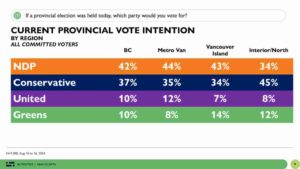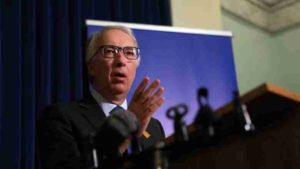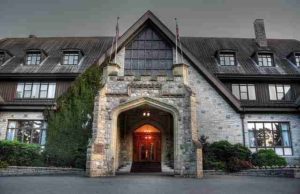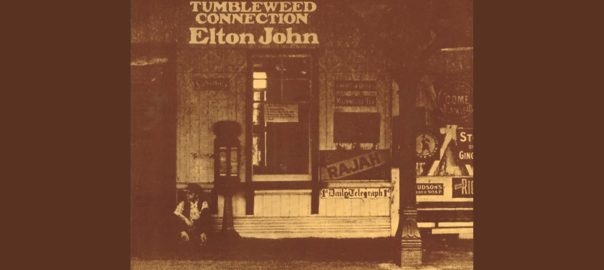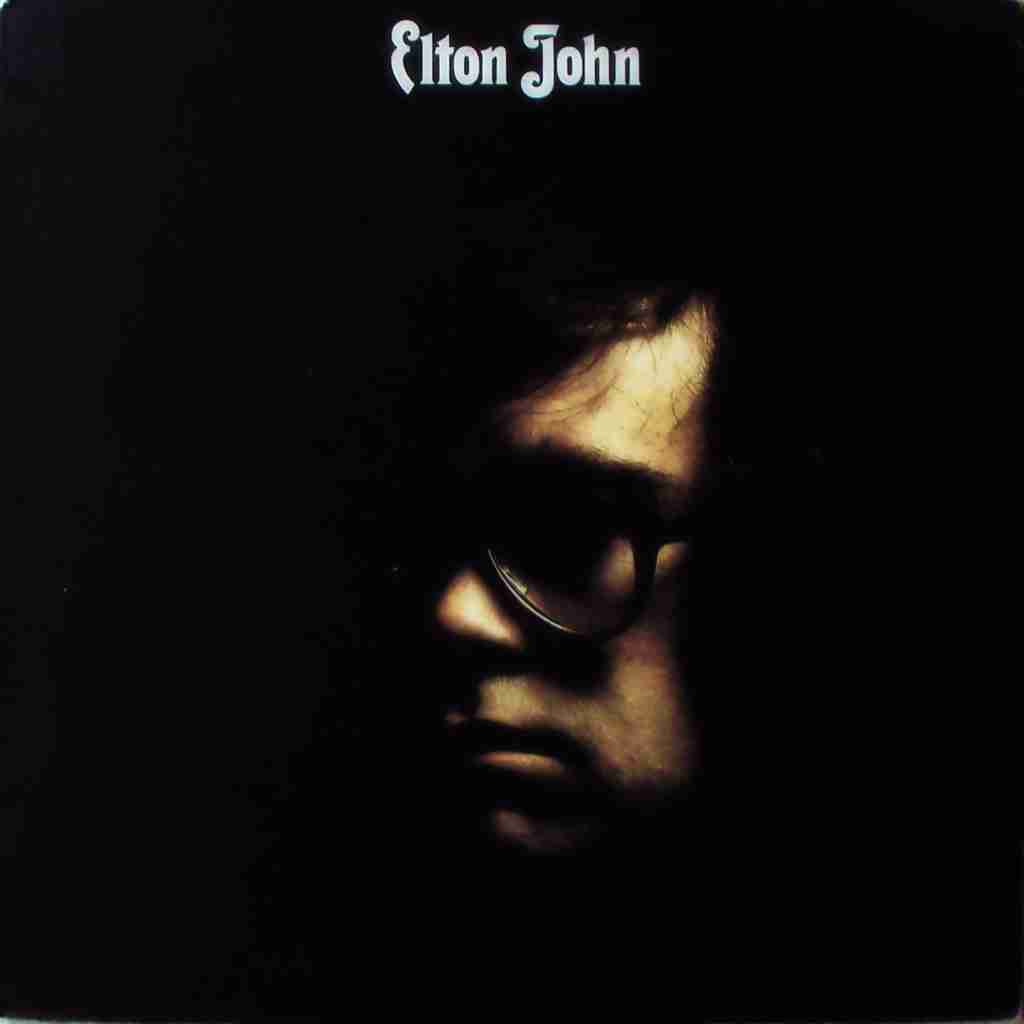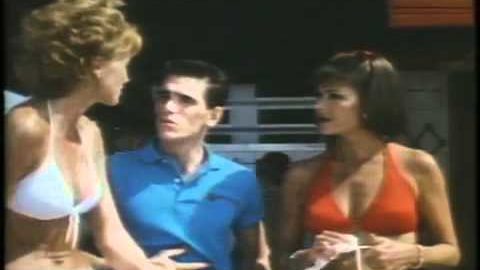
Kevin Falcon currently sits in the British Columbia Legislature as BC United party Leader of the Loyal Opposition, to Premier David Eby’s BC NDP government.
As we wrote yesterday, Kevin Falcon’s BC United campaign for re-election is currently in the doldrums, with the very real prospect — if polls are to be believed — that BC United might very well be wiped off the political map this fall. In fact, VanRamblings has been told that Mr. Falcon is currently running (a distant) second to the BC Conservative’s Dallas Brodie in his home riding of Vancouver Quilchena.
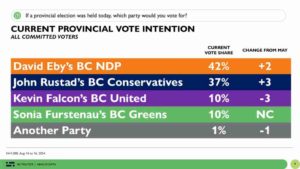
This past Thursday, August 15th, federal Conservative / political observer / past Managing Editor at the Vancouver Sun / 2014 Vancouver NPA candidate for Mayor / former publisher-editor of Business in Vancouver, Kirk LaPointe, wrote a withering column titled, Time for Kevin Falcon to Bid Adieu and Become B.C.’s Biden.
“Kevin Falcon is banking on having his Gordon Wilson moment — to ignite BC United as Wilson’s Leaders’ Debate performance did for the 1991 BC Liberals, rising above the onstage bickering of the NDP’s Mike Harcourt and the Social Credit’s Rita Johnson to deliver the famous line: ‘This reminds me of a couple of kids in a sandbox. I’m not interested in what happened 10 years ago; I’m interested in what happens tomorrow.’ Falcon should worry less about an upcoming debate and more about standing in the way of change.
Falcon’s party’s understandable bitterness about snatching defeat from the jaws of victory ought to be set aside if the BC United team is serious about ending the NDP reign. If it wants to oust government, it ought to lend its experienced election machinery to the party in the best position to properly optimize it in the approaching campaign.
But it depends on the guy at the top, the guy who must regret dispatching Rustad from BC United on his birthday two years ago — to do what in his heart he must know by now is best for B.C.
If he is interested in change, Kevin Falcon needs a Biden moment.”
In point of fact, not only have several sitting members of BC United deserted the party (Lorne Doerkson, Elenore Sturko, Teresa Wat), the staff responsible for running BC United’s election campaign have also been leaving the party in droves.
BREAKING – In line to catch a flight for summer vacation. Just been informed another staffer has left BC United. Renee Nikonov who started with the BC Liberals in 1999 has resigned. She will soon start work with the BC Conservative caucus. #bcpoli #vanpoli
— Jas Johal (@JasJohalBC) August 19, 2024

Again, as we wrote yesterday, word from BC Conservative sources is that Kevin Falcon will, indeed, experience his Joe Biden moment, and resign as leader of BC United before month’s end, caving into pressure from all quarters, not to mention the pragmatism of acknowledging polling over the months that has BC United being obliterated at the polls this upcoming October.
As we wrote yesterday, we don’t believe this “speculation” / wishful thinking.
Why not?

BC United caucus members, l-r: Trevor Halford, Todd Stone, Shirley Bond, Mike Bernier, Coralee Oakes
For a start, the remaining MLAs in the BC United caucus running for re-election under the party’s banner — Todd Stone and Peter Milobar in Kamloops, Shirley Bond in Prince George, Coralee Oakes in Prince George Cariboo-North, Mike Bernier in Peace River South, Dan Davies in Peace River North, Tom Shypitka in Kootenay-Rockies, Jackie Tegart in Fraser-Nicola, Ian Paton in Delta South, and Trevor Halford in Surrey-White Rock — would be left high and dry if BC United were to fold their tent (given that the BC Conservatives have already nominated candidates in each of those ridings), a Kevin Falcon decision to step down as leader would serve to create chaos in the lives of the loyal BC United caucus members who are running for re-election, effectively snuffing out their chance at another term in the BC Legislature, not to mention their political careers and aspirations.
In addition, let us not forget the remaining 87 members of the BC United team running for election under the BC United banner in ridings across our province.
BC United enters the campaign as the second most well-funded campaign, just behind the BC NDP, and miles ahead of the BC Conservatives. Anything can happen during the course of the upcoming 28-day British Columbia election campaign. Kevin Falcon and BC United could very well experience a Lazurus or Phoenix-like re-birth, arising from the dead to fight another day for their principles, as duly elected members in good standing, in the British Columbia Legislature.
VanRamblings will have more to say about Kevin Falcon — of a kindly and generous nature — in the days to come. To be quite honest, we are flummoxed that Kevin Falcon, once a celebrated member of Gordon Campbell’s B.C. Liberal caucus, a builder of the first order, a relatively non-partisan happy warrior in Campbell’s government, who was always prepared to work across the aisle, has fallen on such hard times politically. We’ll write about that grievous circumstance another day.

Bill Tieleman, a VanRamblings neighbour and friend, great chef and oenophile, and all around good guy
Note: VanRamblings’ friend, Bill Tieleman, an all around good guy, one of the most authentic and humane men, not to mention a well-informed and principled politico, and just darn good human being, which is to say, one of the best humans of our acquaintance, now or ever — informs us that in point of fact, the Writ will be dropped on September 21st, not September 14th, as we wrote earlier (we thought there’d be a 35-day election period … apparently not … woe is us … alas).


